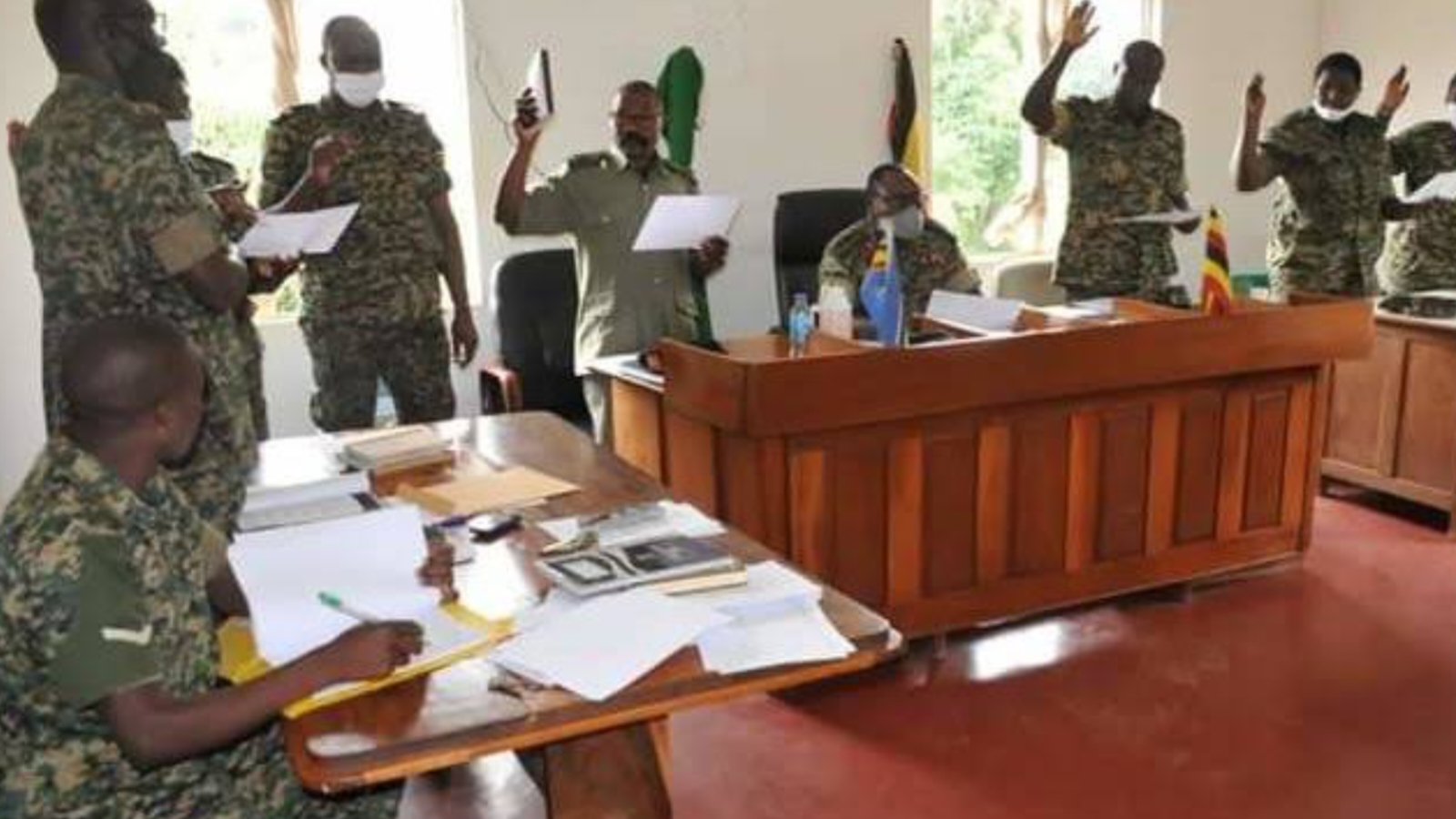Ugandans could soon face military prosecution for owning common substances or even wearing specific clothes, following Parliament’s passage of the controversial Uganda Peoples’ Defence Forces (UPDF) Amendment Bill, 2025. The bill introduces sweeping changes that extend the jurisdiction of military courts over civilians and reclassify everyday items as military property.
The bill introduces sweeping changes that extend the jurisdiction of military courts over civilians and reclassify everyday items as military property.
Read Also
BREAKING: 11th Parliament Passes UPDF Amendment Bill, 2025
State House Orders Probe Into Torture Allegations Raised By Comedian Uncle Mark
“I’m Dying from Pain” — Eddie Mutwe Tells Court After Alleged Military Torture
Eddie Mutwe Displays Alleged Torture Marks In Court
Opposition MPs Storm Out Of Parliament As Debate On UPDF Bill Intensifies
Key Provisions:
The bill reintroduces provisions allowing military courts to try civilians under undefined “exceptional circumstances.” This contradicts the Supreme Court’s January 31, 2025, ruling, which declared such practices unconstitutional and ordered all pending civilian cases in military courts to be transferred to civilian courts.
Additionally, Civilians found in possession of certain items some of which are lawfully owned under other laws could now be subject to military prosecution. These items include: licensed firearms like AK-47s and pistols, Ammonium nitrate, a chemical compound widely used in agriculture and industry
The bill also introduces Schedules 7A and 7B, which classify certain clothing including Kaunda suits in specific colors as official UPDF regalia. Civilians wearing such items could face arrest or prosecution by military authorities.
While the bill allows for civilians tried in military courts to appeal to civilian courts, legal experts argue that this does not sufficiently safeguard the rights of the accused, given the initial trial’s military setting.
Read Also
Bobi Wine Demands Release Of Former CID Spokesperson Twine
UCAA Sets Guidelines As Pilgrims Head To Mecca Via Entebbe
Two Nabbed for Leading Armed Land Grabbing In Kajjansi
UICT Empowers Students To Turn Projects Into Business Ventures
My Brother Was Tortured By SFC, We Lost the Baby- Uncle Mark
Some of the Opposition MPs, including those from FDC, UPC, and NUP’s Jimmy Lwanga, who remained in the House as other Opposition MPs defiantly walked out of today’s plenary session voiced strong objections arguing that the bill undermines constitutional protections and could be used to suppress dissent.
The bill now awaits presidential assent to become law. Given President Yoweri Museveni’s previous support for similar measures, it is anticipated that he will sign the bill. However, civil society organizations and legal practitioners are considering legal challenges to contest the bill’s constitutionality.





